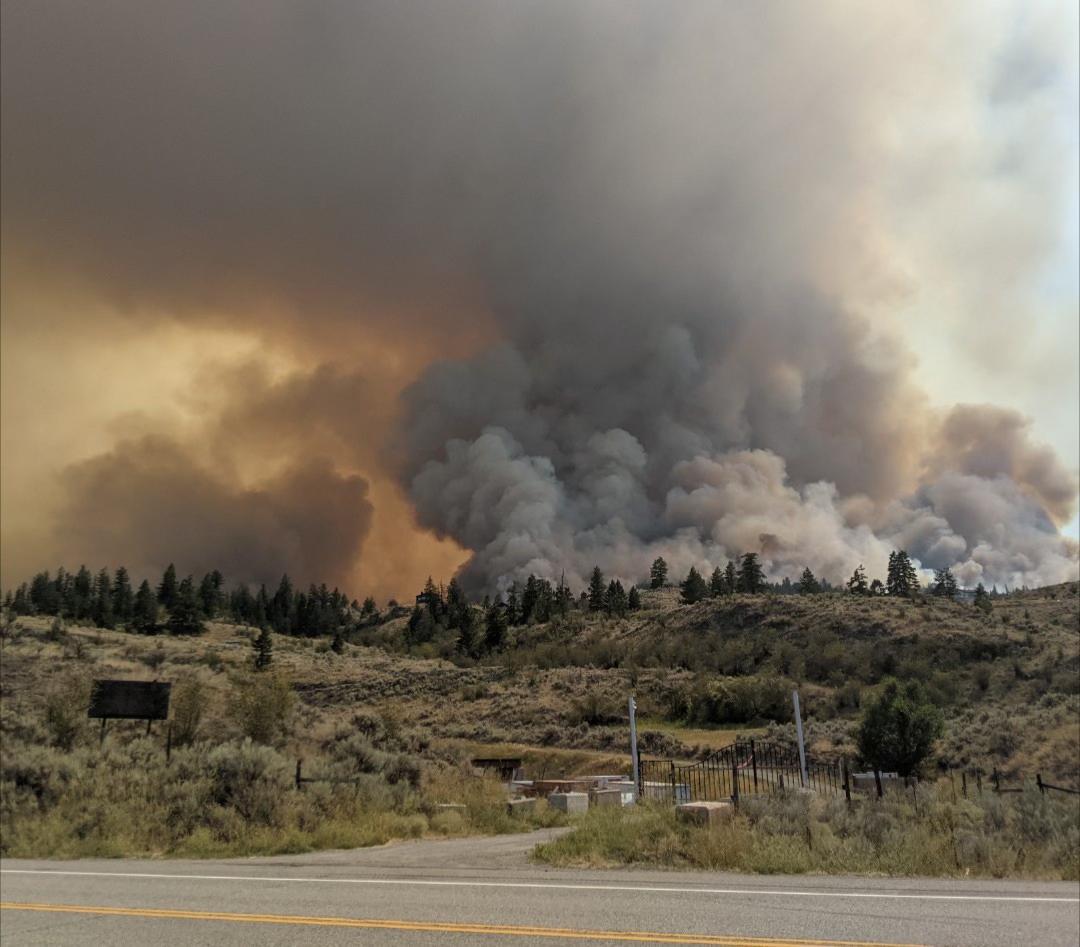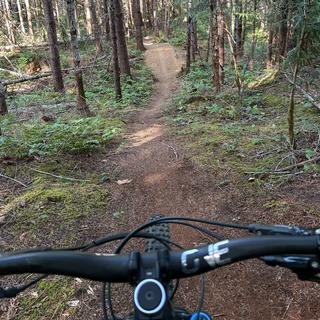Jenn Houtby-Ferguson shares some tips
Recreation and Tourism Management Professor Jenn Houtby-Ferguson is currently doing her doctoral work on emergency readiness and risk communications for the tourism and hospitality industries. She’s a delegate with the Canadian Red Cross and has supported responses to emergency scenarios ranging from wildfires to floods to COVID-19 across Canada. She has also gone to Mozambique to help with hurricane response. We asked her about the current wildfire situation in BC and what the average citizen should be doing right now to prepare.
Given what you’ve observed in the past, what is different about this year’s drought and wildfire situation?
There are many factors that have combined to make for a very challenging year, including higher temperatures both in the environment and an increase in water temperatures due to El Nino conditions. The last number of years have also experienced less snow and rainfall, leading to drought conditions. All of these issues cascade into 2023 being the worst wildfire season in BC and Canadian history.
Who should prepare for an evacuation and what should they do?
People should have a grab-and-go bag with items such as:
· daily medications (if possible),
· some cash,
· first aid supplies,
· shoes/boots,
· gloves,
· hand crank radio/solar radio,
· flashlight,
· water,
· food and
· pet supplies.
I also have emergency supplies in my car, including seasonal clothing (or boots) and blankets. Store key documents like insurance information, passports, marriage license or birth certificates in a cloud folder.
I recommend people keep a small suitcase in their bedroom closet for fast access if you have to leave quickly. If the order shifts from an alert to an order you might not have more than a few moments to get out. It’s a good idea to keep a pair of shoes (not slippers) beside or under your bed in addition to a flashlight. If people are not at home, they may not be able to return in time to pack and evacuate, so having supplies in your car or at work is really important. Prepared BC is an excellent resource for preparing and packing for an emergency.
Prepare a small kit for the kids with items such as hard candies/gum, fruit bars, stickers, notepad, a family picture, a poncho, gloves, a space blanket, an emergency light stick OR flashlight, band-aids and puzzle book. My daughter carries this with her in her backpack. It never comes out unless it is needed.
Communications systems will likely be down or compromised. Have a family plan or a plan with friends about where you will go if you need to evacuate and who outside the community you will check in with. Text rather than call if you can.
What can people expect if they get an evacuation alert?
An evacuation alert means be ready and prepare to leave your home at a moment’s notice. As we have seen, things can shift very quickly and people may need to leave their home before an evacuation order is issued. Residents and visitors must monitor conditions with official government sources. In Nanaimo, for example, the City of Nanaimo, Regional District of Nanaimo and Snuneymuxw First Nation – all have an emergency preparedness page on their website where you can sign up for text/call alerts for areas where you work and where you live. EmergencyInfoBC and PreparedBC are other credible sources. All will post to social media with the most current updates. Check the date and time stamp to be sure you are accessing the most up to date information. Do not rely on word of mouth from family or friends, often information is misunderstood and this can be dangerous.
While on alert, if you haven’t already, pull your important documents and emergency supplies together, charge all your devices, pack your backup drives, fuel up your car with it parked facing out to the road and put your grab-and-go kit inside of it.
Can you talk a bit about the potential economic impacts of BC’s drought/wildfire situation this year?
The 2023 impacts will be significant. Many Canadians have lost their homes, businesses and in some cases both. When highways are closed, this affects businesses that rely on that road traffic, but may not be in the evacuation zone. Travel restrictions were also put in place this year, which affects accommodation providers, campgrounds and parks as well as all of the other services that rely on visitors like kayak rentals and tour companies, so the economic impacts will be even greater. BC’s destination image may also be affected more broadly with people assessing the risks of travelling to western Canada during the summer months. It will be difficult to quantify the economic impact in the short term. We may also start to see visitors choosing to travel into the fall or earlier in the spring to avoid wildfires season for example. I expect to see visitors choosing flexible travel options and paying a slightly higher rate to maximize the options for cancellation or rebooking.
Can you share any thoughts on the level of awareness of residents and visitors as it relates to government messaging and expected actions?
The most important thing is to be aware and to seek credible sources (non-media) to ensure the information being shared is accurate and up to date. Social media platforms are not allowing Canadian news content to be shared and I think this has been a serious issue this wildfire season. More to be measured here, but it has been challenging even for local governments to share information without it being banned – and yet there are lives at risk. Signing up for Voyant alerts through your home community and also in the community or communities where you work is critical. This is done through the emergency preparedness pages on each community’s site. If you work in Victoria or Vancouver but live in Nanaimo, you should sign up for alerts in both communities. In addition, you may see impacts in more than one region, making it difficult to return home or to work. Government messages will tell us what to do, where to go or what to expect.





